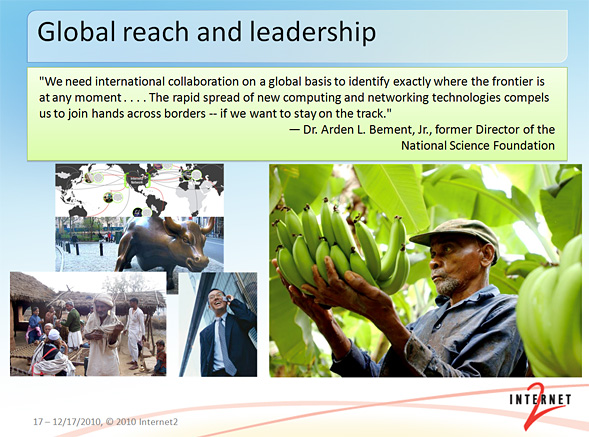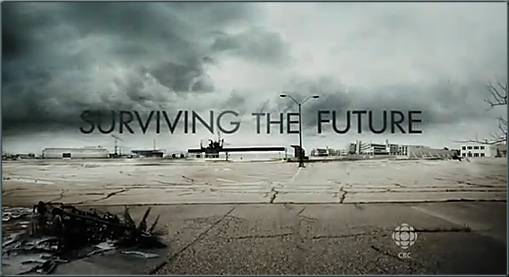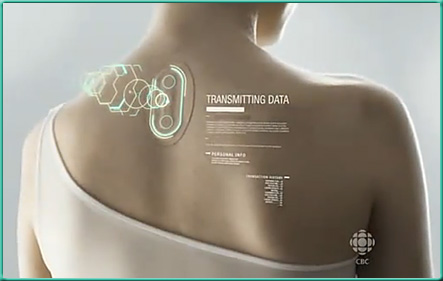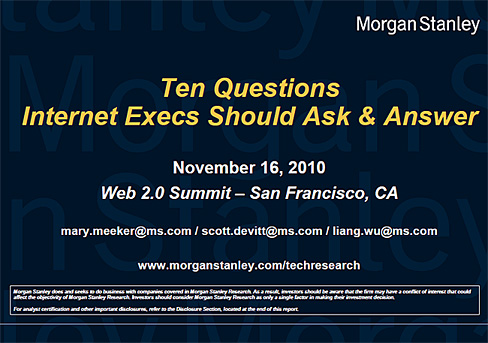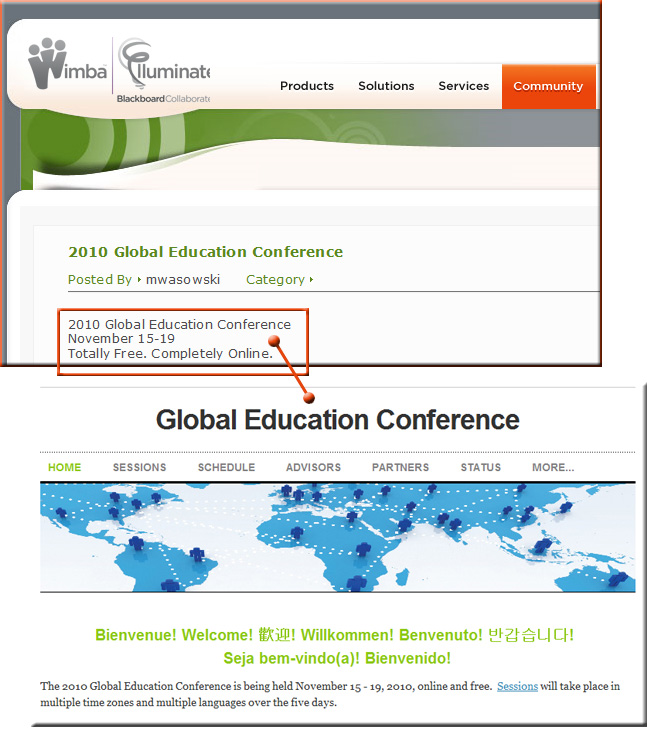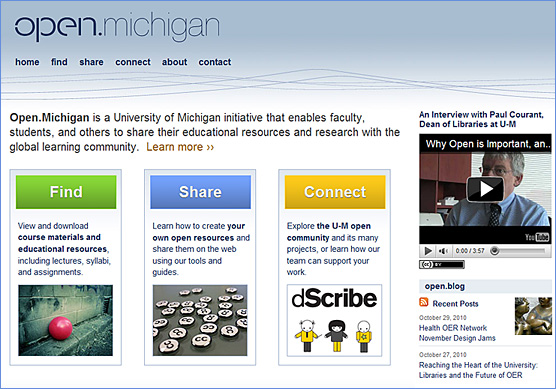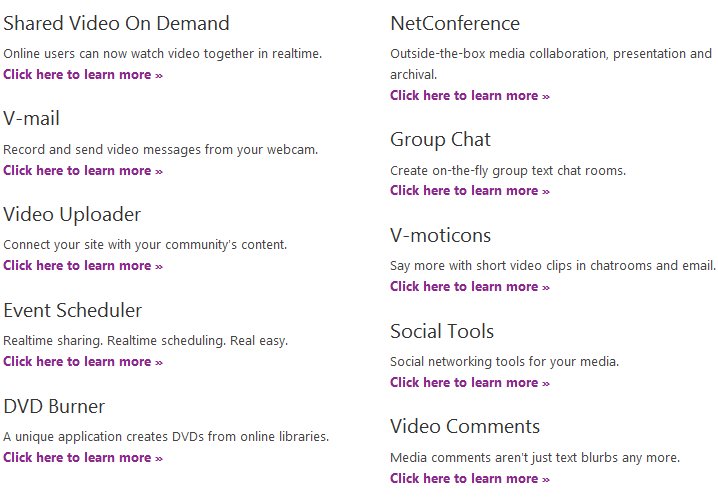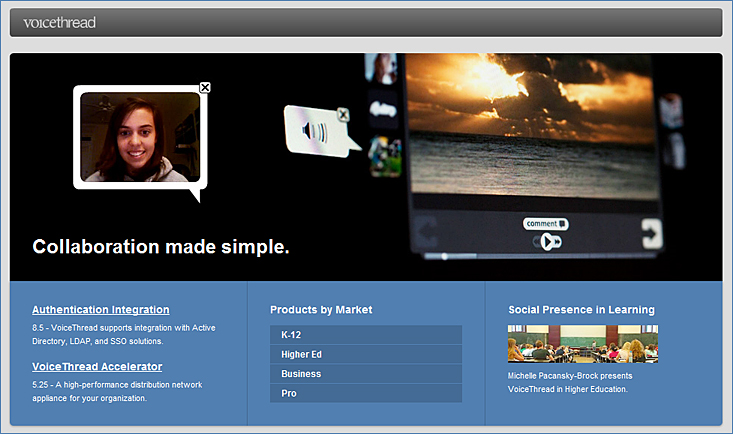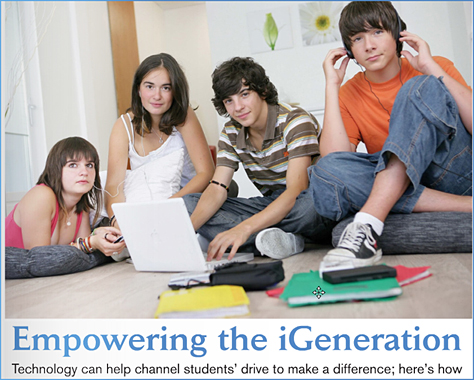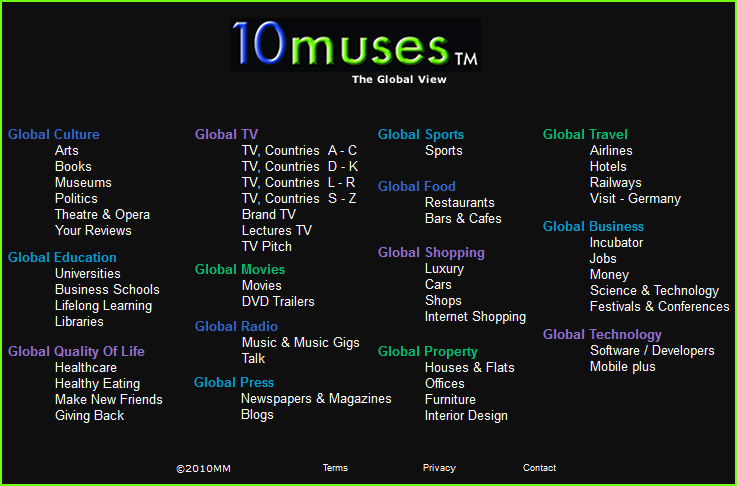
Per Mark Macho:
You and your students might enjoy www.10muses.com. There is instant access to the TVchannel sites of the whole world for a starter, arts around the world and much else, popular fun but also a simple way to learn about how others around the world perceive our time and its innovations.
Our tagline is ‘the global view.’
If you look at ,say the New York Times, you will get news from China, but filtered through an American reporter and an American editor. We grouped media so someone could see what the Chinese themselves are saying.
We provide the links to the preeminent publications. But whether it is about design or politics it is all ‘straight from the horse’s mouth.’
I am American and I think our inability or rather failure to really see other perspectives is harming us in every way–in the wallet, in defense, in noticing developments.
As you will notice there is a place on every topic to ask questions and get an answer from someone on the ground who really knows. What is the best club for House music in Moscow?…for instance. We have team members from every continent.
From DSC:
I don’t know much about this site, but being able to get another perspective — from someone in another country — seems like a good thing to me. Thanks Mark for the resource.










